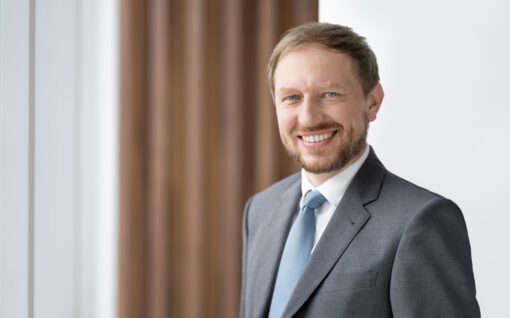Nearly 24,000 kilometres of roads, end to end measuring ca. 60% of the Earth’s equator in length, hundreds of bridges, thousands of buildings and tens of thousands of cars – this is only a partial account of the destruction inflicted so far on Ukraine by Russian forces. But although the war in Ukraine has not stopped since 24 February 2022, the prospect of a post-war reality cannot be ignored, and so ways of rebuilding the country should be considered.
In view of the losses suffered, Ukraine today needs massive financial support, i.e. ca. USD 5 billion per month just to meet its primary economic needs. Data shows that such an enormous scale of destruction has also resulted in Ukraine losing nearly 50% of its GDP. It must be remembered, however, that the war is still going on, so the figures we know today may soon become outdated.
Priority should therefore be given to all measures that can contribute to a rapid end to the armed conflict taking place in Ukraine. At the same time, various possibilities for rebuilding the country should be considered once the threat from the Russian Federation has passed. As Markiyan Malskyy, PhD, Partner and Head of our Ukrainian Desk, states, such a prospect has a huge impact on shaping the morale of fighting soldiers, who understand through these messages that there is life after the war and it is close at hand.
Importantly, Ukraine has long harboured a considerable investment potential. In the face of current events, the energy transition sector is one of the first sectors that should lead the way in the country’s reconstruction, together with the possibility of modernising this in line with global trends, which could also bring Ukraine significant economic benefits.
“Nuclear power plants, i.e. the largest and most important facilities from the perspective of the energy sector and the security of energy, fortunately operate flawlessly. However, war-related losses in the area of energy infrastructure are significant in Ukraine. The whole infrastructure needs to be rebuilt so that energy and heating, which is crucial in winter, can be supplied to houses once more. The necessary investments in the power sector are a great opportunity to modernise and bring it in line with global trends such as decarbonisation, smart grids and the use of energy storage on a larger scale” says Wojciech Wrochna, Partner and Head of our Energy, Natural Resources and Chemicals Practice.
If we talk about business opportunities and investment potential, it is also impossible to ignore the IT services sector, which accounted for ca. 4% of Ukrainian GDP before the war. The great potential of this industry is due, among other things, to a substantial talent pool and highly-specialised IT personnel now available in Ukraine.
Today, two elements are key for IT companies. Firstly, maintaining current engagement via acquiring new projects and clients, and secondly, securing financing that allows them to stay in business and, in the near future, to develop and scale their services.
However, the critical element for energy transition and development of the IT services sector is their financing. Although international organisations are helping and supporting the Ukrainian economy, and their support can be even counted in tens of billions of dollars, it is still not enough to cover everything.
“Procurement procedures are another element inherent in Ukraine’s reconstruction process. These can vary and each time depend on the source of funding for a particular project. For example, funds provided by the World Bank are disbursed through tendering procedures conducted in accordance with its regulations. The same applies to projects financed by individual UN agencies or the EBRD. At present, international organisations are already conducting several dozen such proceedings in favour of Ukraine. These include the reconstruction of houses and infrastructure, the supply of building materials, medical equipment and medicines, and transport services. Ultimately, the reconstruction process in this country will be carried out on the basis of Ukrainian public procurement law and the PPP and concession formulas. The latter may become more popular due to the financial involvement of private partners in the implementation of a specific project,” says Jakub Krysa, Partner and Head of our Public Procurement Practice.
In May 2022 we organised an event devoted to the reconstruction of Ukraine and associated investment prospects in the post-war reality, which featured international experts in the field. The most important thing now is to start implementing the initial findings and ideas that were proposed there. To quote the U.S. writer Dan Brown: “Everything is possible. The impossible just takes longer.”
Source: Money.pl
Date: 7 June 2022
Questions? Contact us
Markiyan Malskyy
Jakub Krysa
Wojciech Wrochna






